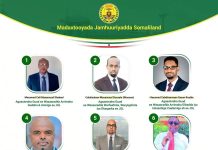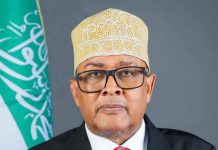Introduction
Whatever yardstick one uses, Somaliland has made remarkable progress towards democratic governance and the respect of civil liberties compared to the other neighboring countries.
Somaliland, like many modern states of the world, practices representative democracy in which the sovereignty of the people is exercised through their elected representatives. Since a representative democracy assigns significant powers to the elected leaders, there are legitimate concerns about how the leaders are chosen, the expense of their jurisdiction, as well as their scope of influence. This is why the electoral system is an extremely important aspect of any democratic country. Simply put, it is the electoral system that dictates who represents how many people and in what area or jurisdiction.
Strong and sustainable democracy is dependent on the existence of well-functioning political parties. Political parties are crucial actors in bringing together diverse interests, recruiting and presenting candidates, and developing competing policy proposals that provide people with a choice.
Functions of Political Parties
1) Integrative Function
Political parties act as unifying and stabilizing factors in the political process thereby enhancing national integration. They bring together sectional interests by broadening the range of interests they represent. Their function of aggregating interests often provides a safety valve in the sense that the diverse interests appear, at least, to be satisfied.
2) Political Recruitment
Political Parties are known to provide the base on which the selection of the political leadership in whose hands power and decisions will in large measure reside. To this extent, they are the only legitimate avenue to political power in democratic political systems.
3) Policy Function
Political parties also have the crucial function of formulating and executing policies within a political system. They can always act as the source of policy agenda for the Government. This policy function of the party also entails the drawing up of development plans. Political parties are both a consequence of a process of political change and a cause of further change by increasing a society’s capacity to cope with crises of integration, participation, and distribution. Parties also mobilize and aggregate public opinion and communicate to the central government regarding diverse interests for which decisions are to be made.
4) Institutionalizing Democracy
Political parties, ideally, should be the mechanisms within which people become habituated to democratic norms and procedures. It is political parties that give substance to constitutional rules thereby enlarging the formal outcome of democracy. Parties offer the principal institutional means of organizing people’s participation in a constructive and legitimate way. The stability of a modernizing political system depends on the strength of political parties. A party, in turn, is strong to the extent that it has institutionalized mass support.
5) Conflict Management Function
The essence of politics on a day to day basis seems to be the management of conflict i.e. the ability of the political system to manage the kinds of demands that are made on it. Political parties, in spite of either ideological or societal clearances, can effectively manage potential conflicts through power sharing pacts. Political parties also do; political socialization, legitimizing function and patronage function.
As Somalilanders, what kind of political parts do we have? We have political parts based on tribe and tribalism. Political parties that don’t perform the above-mentioned functions. Political parts who misguided the importance of their main duties and responsibilities. Political parties who see their main duties are campaigning and getting the presidential seat. Political parties who completely ignored the social work and political socialization.
By: khadar Da’ud Abdirahman
E-mail: khadar.daud@gmail.com































